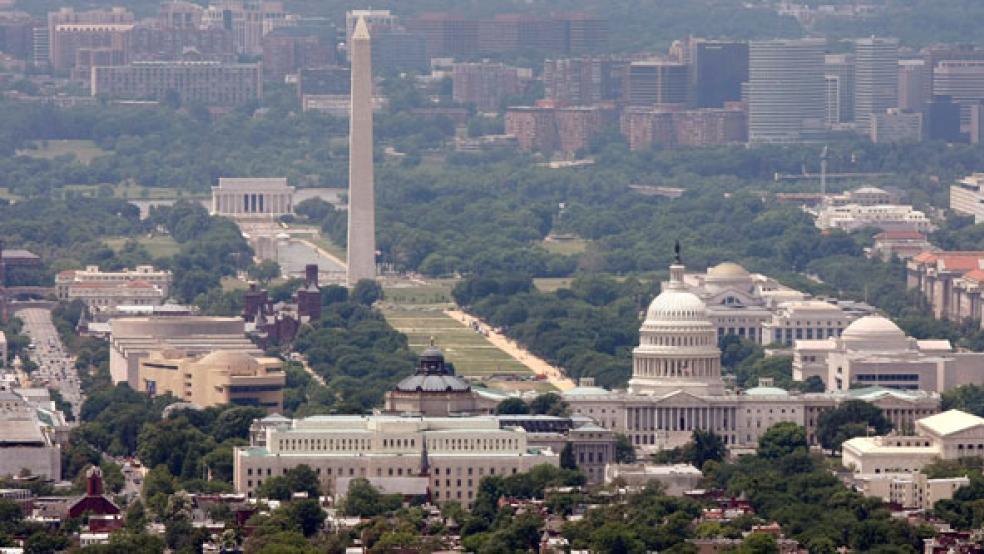With the passage of President Biden’s American Rescue Plan, the federal government has now provided more than $5 trillion in relief and stimulus spending in response to the Covid-19 pandemic over the last year, leading some to wonder if we are witnessing the start of a new era of big government.
Gallup’s Frank Newport tackles that issue Friday, noting that the “new legislation once again brings into sharp focus conflicting opinions on the appropriate role of the federal government in Americans' daily lives — at the center of controversy and dispute since the drafting of the U.S. Constitution 230 years ago.”
Americans clearly approve of Biden’s spending plan, Newport says, and have supported all kinds of stimulus spending since the beginning of the pandemic. More broadly, the latest Gallup poll shows that a majority of Americans — 54% — want to see the government do more to solve problems, the highest reading on that question since the polling organization began asking about it in 1992.
Opposition remains: On the other hand, a substantial minority — 41% — say that the government is already doing too much and should allow individuals and businesses to solve their own problems. Those who oppose an expanded role for government sometimes say they are worried about deficits and the debt, although those worries don’t appear in recent poll data, Newport says. “Indeed, if the deficit is a concern, Americans appear to be willing to increase government income with elevated taxes on high-income families and with a wealth tax on ‘ultra-millionaires,’ as proposed by Sens. Elizabeth Warren and Bernie Sanders,” he writes.
A new poll from The Hill and HarrisX backs up Newport’s view, with 56% of respondents in a survey taken from March 5 to March 8 saying that inequality is a problem in the U.S. and a wealth tax is part of the solution. The other 44% said that a wealth tax is unfair and a penalty on successful people. The partisan differences were pronounced in the poll, though, with about 80% of Democrats supporting a wealth tax, and 64% of Republicans and 51% of independents opposing it.
The fight continues: The lack of bipartisan agreement on future spending programs, such as the still-developing infrastructure plan Biden wants to pass, may mean that a new era of big government will have trouble getting started. “If the economy and jobs situation improve markedly, there could in turn be a backlash of sorts to continuing increases in government spending,” Newport says. “And the razor-thin margins of Democratic control of the House and Senate could shift in 2022 or 2024, allowing Republicans to again press their emphasis on curtailing major government spending programs.”
The bottom line: In the long run, crises like the Great Depression and World War II have generated some of the most significant changes in the size and function of government, leaving legacies such as Social Security and the GI Bill in their wake. It’s not clear yet whether the Covid crisis will generate the same kind of legacy. “Big government ... has clearly been a fact of life in the U.S. before the stimulus plans of the past year,” Newport writes. “The question going forward is more about the trajectory of the continuation of this long-term trend, and less about the sudden arrival of a new era of government involvement in our lives.”




